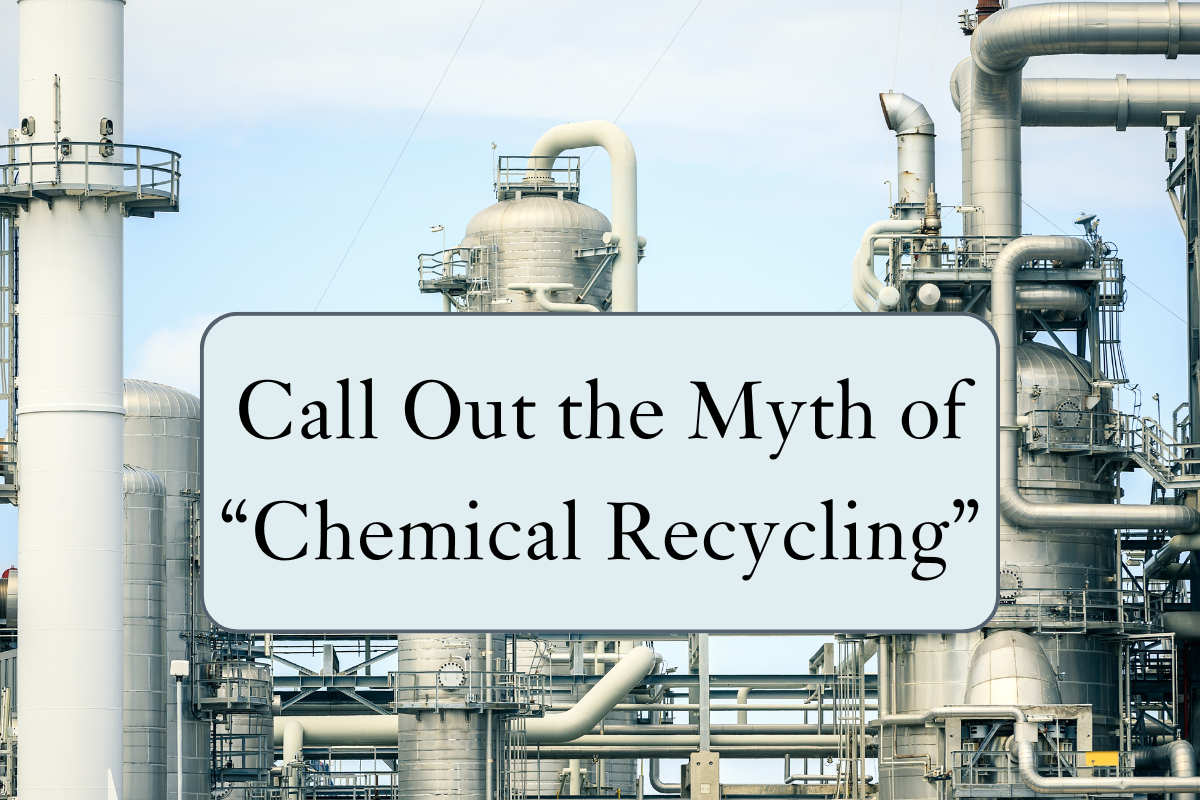
Chemical recycling isn’t the miracle solution the plastics industry claims it to be. It’s a scam, a bad investment, and it’s toxic – both to our environment and our communities.
What Is Chemical Recycling?
The industry uses the term "recycling" as a marketing ploy to sell this harmful process to the public. In reality, chemical recycling is nothing more than trash incineration, the byproduct of which is a low-grade liquid fossil fuel to be burned elsewhere.
Why Chemical Recycling Is a Scam
It’s repackaged incineration: Plastic burning isn’t a new idea—it’s just an updated version of the trash incineration that’s been used for decades.
It's a marketing scam: The plastics industry is using the word “recycling” to make chemical recycling sound safe and effective. However, it’s a smokescreen to distract from better solutions.
It's guaranteed pollution: These facilities emit hazardous chemicals into the air and water, putting the health of the environment and nearby communities at risk. They also produce large amounts of greenhouse gasses, exacerbating the climate emergency.
The Toxic Truth About Plastic Burning
Chemical recycling poses significant dangers to both the environment and public health. The process generates toxic waste that contaminates the air, land, and water, poisoning the resources we depend on. Plastics contain thousands of hazardous chemicals, many of which are released during burning, creating highly toxic emissions that threaten our communities and the environment.
When plastics are heated or burned in chemical recycling, they release a range of harmful pollutants into the atmosphere, including dioxins and volatile organic compounds, which are linked to serious health problems like cancer, respiratory issues, and developmental disorders
Environmental Injustices
Chemical recycling plants are frequently built near low-income communities and communities of color. These vulnerable communities are often already overburdened by pollution from the petrochemical industry. Residents near these facilities are exposed to harmful chemicals released during the recycling process, which can worsen existing health problems and contribute to new ones.
What’s more, many of the communities targeted for chemical recycling facilities lack adequate resources to fight back against these developments or to demand stricter environmental regulations. As a result, they are often left vulnerable to the negative effects of industrial pollution.